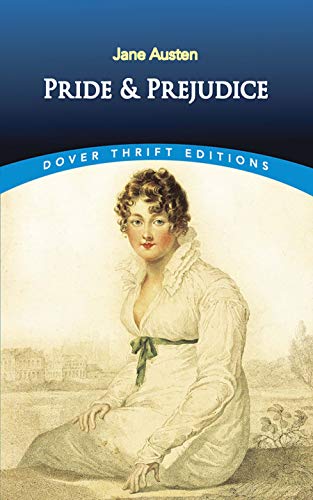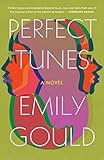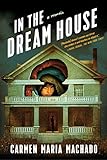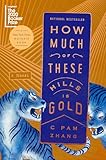In the last five days I have driven a little over a thousand miles in a rented Toyota Camry with my two daughters and a large carton of Goldfish crackers. This trip seemed like a good idea when I planned it, but as the date of our departure approached it began to appear increasingly quixotic. For one, the nominal purpose of the trip was to make an author appearance at a book club that I had agreed to visit when I lived in the Bay Area, where it was to be held, and not in Oregon, where I now live. Moreover, the trip was not planned as a straight line. It takes about 10 hours to drive directly from Portland to the Bay Area, but I added several hours to the trip by planning to stop in the town of Alturas, California, to visit my deceased grandparents in the cemetery and spend the night in a historic hotel. (In addition to being quixotic, the trip also seemed like metatextual cuteness, since I had written an entire book about a woman who drives to rural California with a small child in the backseat; it was as if I had decided to insert autobiography where there had been none, and prove my Goodreads detractors correct that the book is artless.)
I decided that the trip was only going to work if I employed all of the tricks that were not available to the book’s protagonist, or to my own parents, who spent a lot of my childhood driving me around in the backseat of a car. I set up an iPad for the older child, a backup tablet for the younger child, positioned the Goldfish carton so that both could reach down into its maw, and for myself downloaded an audiobook of Pride and Prejudice, which I realized I had never read despite knowing its plot from various film properties.
The first leg of the trip was supposed to take around six and a half hours. As the road began to incline up toward the snow-dusted trees of the Willamette pass, Jane got sick (Mrs. Bennett made her go to Netherfield without the carriage), and I stopped to pee on an embankment in sight of the car. I drove white-knuckled and 18 miles an hour over the packed snow at the pass, the soothing voice of Rosamund Pike nudging me onward. We stopped to give thanks and pee at a gas station in Chemult at twilight, which was the advent of Mr. Collins, and he delivered his ill-fated proposal to Elizabeth as we passed the turnoff for Crater Lake with the last bit of pink in the sky. We stopped to pee again in Merrill, and the children crowded in a gas station bathroom with me while I devised an impromptu sanitary napkin out of paper towels and wondered what the Bennett girls did in these moments. Between Ambrose and Hackamore, after Bingley decamped for London without warning, we hit an owl.
At one point in the drive my older daughter, who was watching Cinderella, asked if I was listening to a story too, and I said I was. It’s been a long time since I’ve seen Cinderella, and I groaned when I heard the voice of the advisor from the backseat, surveying the array of uglies at the ball: “There must be one who’d make a suitable mother…err a suitable wife!” he says. There are so many moments in the raising of girls where the available cultural materials seem sorely wanting. But then I realized that I was listening to essentially the same story, and that it was probably single-handedly responsible for turning an experience that is objectively unpleasant—long car travel with children in sparsely populated country in the early winter dark—into one of the best times I have had in recent memory.
 That first night we sat outside the Niles Hotel in twenty-degree weather waiting to be let in, the only guests in a drafty century-old building with period furnishings, and then the girls cozied up together in an ancient bed, and I re-read Of Human Bondage, which I had brought as my physical book. I wondered what was happening with Lizzie and Darcy and Bingley and Jane. I knew what would happen at the end of the book but I could hardly wait to get back into the car to listen to it.
That first night we sat outside the Niles Hotel in twenty-degree weather waiting to be let in, the only guests in a drafty century-old building with period furnishings, and then the girls cozied up together in an ancient bed, and I re-read Of Human Bondage, which I had brought as my physical book. I wondered what was happening with Lizzie and Darcy and Bingley and Jane. I knew what would happen at the end of the book but I could hardly wait to get back into the car to listen to it.
I don’t know if it was the novelty of the trip—Portland to Alturas, Alturas to Petaluma, Petaluma to Oakland to Davis, Davis to San Francisco to Menlo Park—or the iPad, or Pride and Prejudice, but something has encouraged all of us to rise to the occasion this week. As we passed familiar sights I was glad we made the trip: the life-size religious tableaux set up by the In Search of Truth cult in Canby, California, the long-awaited McDonald’s in Burney, the glory of Shasta rising up on a clear winter day. My beloved aunt died in October and I found myself wanting to call and tell her about the things that we saw in her hometown. The importance of aunts is a theme in Pride and Prejudice; aunts as confidants and sources of wisdom. When I was younger my aunt let me smoke in her backyard and tell her my adventures.
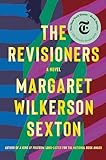

 This week in the car stands in stark contrast to the last week I spent alone in the company of my children, which was when we moved to Portland at the end of July. The move has turned out to be the best possible thing for our family, but that week, when it was hot and we were in a new city with no furniture and nothing to do, was one of the worst weeks I can remember. My most vivid memory from that time is chasing a 22-month-old around a Fred Meyer grocery store, sobbing on the phone with my former Primary Care Practitioner in San Francisco, with whom I have always had a very cordial and impersonal relationship, to see if there was anything she could prescribe me to get through this experience (she reluctantly but kindly prescribed me Prozac, which I failed to pick up from my HMO before we were switched over to a PPO, and for all I know is still sitting there in a pigeonhole marked K).
This week in the car stands in stark contrast to the last week I spent alone in the company of my children, which was when we moved to Portland at the end of July. The move has turned out to be the best possible thing for our family, but that week, when it was hot and we were in a new city with no furniture and nothing to do, was one of the worst weeks I can remember. My most vivid memory from that time is chasing a 22-month-old around a Fred Meyer grocery store, sobbing on the phone with my former Primary Care Practitioner in San Francisco, with whom I have always had a very cordial and impersonal relationship, to see if there was anything she could prescribe me to get through this experience (she reluctantly but kindly prescribed me Prozac, which I failed to pick up from my HMO before we were switched over to a PPO, and for all I know is still sitting there in a pigeonhole marked K).
 The move is one of the reasons I feel as though I haven’t read anything this year. But as in every year, I did read things. Before we moved I read The Revisioners and Women Talking and Lanny and Heavy and The Unpassing, all of which made me weep for different reasons. I read The Parisian and The Old Drift, which are both long and wonderful and address history and which I envied for their beauty and complexity and verve. I know I read other things, but the spring is a blur of thinking about whether to move and discussing the particulars of the move and preparing for the move and then doing the move itself.
The move is one of the reasons I feel as though I haven’t read anything this year. But as in every year, I did read things. Before we moved I read The Revisioners and Women Talking and Lanny and Heavy and The Unpassing, all of which made me weep for different reasons. I read The Parisian and The Old Drift, which are both long and wonderful and address history and which I envied for their beauty and complexity and verve. I know I read other things, but the spring is a blur of thinking about whether to move and discussing the particulars of the move and preparing for the move and then doing the move itself.
Post-move, when my children started camp and daycare and I was alone in the empty house with a number of home improvement projects and a book project I lacked the wherewithal to do, I opened a box of galleys I had previously felt too burned-out and defeated to read. I read Normal People and felt like the raw edges of the preceding weeks smoothed over. I read The Altruists. I went to the library and got a library card and read Loving Day on the porch and on the bed my poor husband put together by himself after going to a new job and coming home to find me crying after a day at the indoor playground. These books helped me feel pleasure in things again.
 When I was settled enough to get to work, I read The Smartest Guys in the Room. I purchased and read the “Women of Enron” issue of Playboy, a real object that exists and was produced by our society. I tried to remember the excellent things I had already read for this project, back before moving consumed everything. Before we moved I had read The Oil and the Glory at a table of the Ingleside branch of the SFPL, and an anthology called Working for Oil. At the library of the beautiful Morrison Reading Room at UC Berkeley I read The Oil Road. (It occurs to me now that I am trying to write a book that combines what all these authors know about extractive industries and business culture and imperialism with what Jane Austen knew about the women of her acquaintance sitting together in a room, and I am still not sure how to do this.)
When I was settled enough to get to work, I read The Smartest Guys in the Room. I purchased and read the “Women of Enron” issue of Playboy, a real object that exists and was produced by our society. I tried to remember the excellent things I had already read for this project, back before moving consumed everything. Before we moved I had read The Oil and the Glory at a table of the Ingleside branch of the SFPL, and an anthology called Working for Oil. At the library of the beautiful Morrison Reading Room at UC Berkeley I read The Oil Road. (It occurs to me now that I am trying to write a book that combines what all these authors know about extractive industries and business culture and imperialism with what Jane Austen knew about the women of her acquaintance sitting together in a room, and I am still not sure how to do this.)
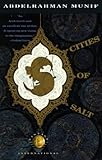 When I adjusted to the fact of our new city, when we got a bookshelf and a dresser, I could look back and see clearly how anxious and unhappy I had been for a lot of the last year. Oddly, work trips, which seemed like a pain in the ass at the time of their planning and execution, were some of the moments that I remembered most fondly, and they were lonely and strange times. In May I traveled to Miami for a work thing and sat at a restaurant alone reading Cities of Salt in the sea breeze, glowing with happiness at the luxury of solitude and an immersive novel. Over two solo road trips to Los Angeles, also for book stuff, I listened to the entirety of Oil!, finishing it just before hitting the In ‘n Out burger at Kettleman City on the way to San Francisco. In Los Angeles I sat at a bar and read The Sea, The Sea for the hundredth time.
When I adjusted to the fact of our new city, when we got a bookshelf and a dresser, I could look back and see clearly how anxious and unhappy I had been for a lot of the last year. Oddly, work trips, which seemed like a pain in the ass at the time of their planning and execution, were some of the moments that I remembered most fondly, and they were lonely and strange times. In May I traveled to Miami for a work thing and sat at a restaurant alone reading Cities of Salt in the sea breeze, glowing with happiness at the luxury of solitude and an immersive novel. Over two solo road trips to Los Angeles, also for book stuff, I listened to the entirety of Oil!, finishing it just before hitting the In ‘n Out burger at Kettleman City on the way to San Francisco. In Los Angeles I sat at a bar and read The Sea, The Sea for the hundredth time.
Every book that I’ve managed to finish since we moved feels like it helped me regain my equilibrium in some crucial way. Before Halloween, I read Chimerica, which is a book that sounds slightly batshit (it has a talking giant lemur who is the subject of a court case) and turns out to be one of the smartest fictional engagements with the American legal system that I’ve ever read. I read Perfect Tunes with a whiskey sour my husband made me, the children asleep in bed, and I felt young and happy. I read American War on the plane to California to see my aunt for the last time. After Halloween—which since having children marks the start of a period that lasts until mid-January and during which I don’t get anything done due to holiday obligations and inevitable winter illness—I lay on the couch reading In the Dream House at nearly one go while my children watched shit on the iPad and my husband made our dinner in the toaster oven (we were at this time living out of the dining room). It feels peculiar to have such a singularly enjoyable reading experience from a book that arises from someone else’s pain, but that’s one major paradox of reading, and Carmen Maria Machado is so talented that it is pure pleasure to be in that swiftly-moving book. I read Giving up the Ghost, which is also pure pleasure rooted in someone’s pain, Hilary Mantel with her treacherous endometrial cells and her subtly idiosyncratic prose. I read How Much of These Hills is Gold, which is gorgeous and close to my heart because it is about a quixotic trip through California, undertaken for family and personal reasons.
I never canceled the book club thing in California I think because I wanted to tell myself that moving to Oregon would be just like moving to another neighborhood, and that I would continue to be able to access my family and friends and the landscapes of California with total ease. This road trip has made it clear that it is not the case. There’s the distance, which is vast but surmountable; more than that I’m realizing how difficult it is to visit your grown-up friends when you have children in tow. This is a trip where I’m seeing very few friends, despite my breezy assurances when we moved that “I’ll come back all the time.” This realization is one in a series of recalibrating lessons, but I’m in a better frame of mind lately to receive it. I’m typing this at two in the morning in my grandmother’s house in the Bay Area, and my children are sleeping, and they have been such good girls, and I have been such a comparatively calm and pleasant mother to them on our strange road trip, maybe because it was one I conceived of and undertook entirely on my own steam, or maybe it was because Pride and Prejudice made me happy. Tomorrow we will start the long drive back home; I downloaded Sense and Sensibility to ease the way.
More from A Year in Reading 2019
Don’t miss: A Year in Reading 2018, 2017, 2016, 2015, 2014, 2013, 2012, 2011, 2010, 2009, 2008, 2007, 2006, 2005
